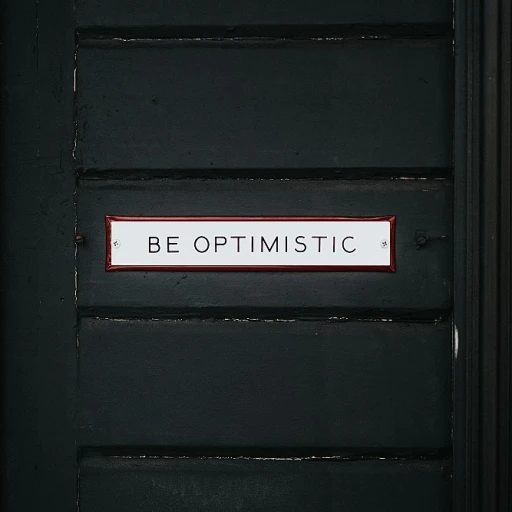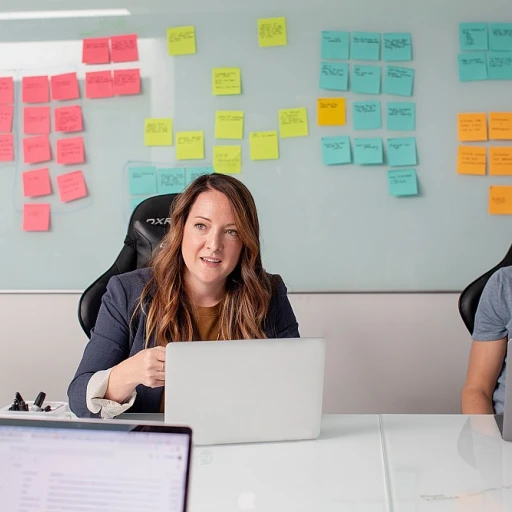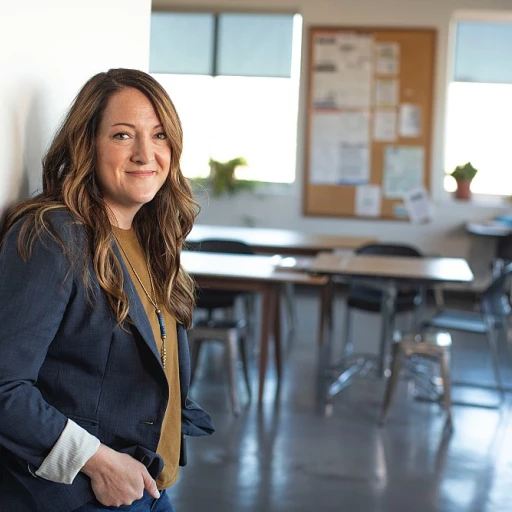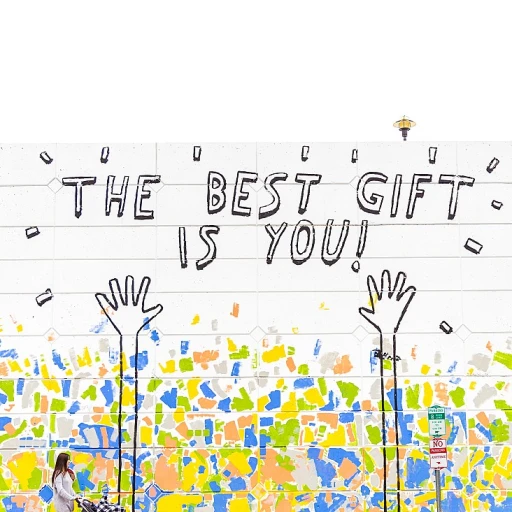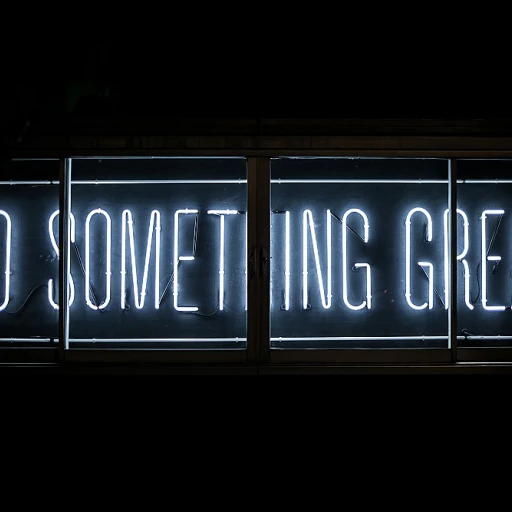
Understanding the Role of Mentoring in Creativity
The Influence of Mentoring on Creative Potential
Professional mentoring plays a vital role in unlocking and enhancing creative potential. It's not just limited to a support system for personal development, but a catalyst for igniting creative energies. By developing a meaningful relationship with a mentor, individuals can explore untapped areas of creativity that may otherwise remain dormant.
Mentoring in a creative context allows for the sharing of expertise and the transfer of skills and knowledge that help mentees evolve into their fullest creative selves. Organic creativity often requires guidance to mature into effective problem solving and skill development.
For those looking to elevate their creative business, embrace leadership development, or foster creativity within organizations, incorporating a mentoring program can be a game-changer. Mentors provide creative solutions, support, and resources that can significantly enhance an individual’s or an organization’s creative performance.
Why Creative Mentoring Matters
A creative mentor does not only sharpen skill sets but also nurtures the expressive abilities of their mentee. This process often impacts work outputs and career trajectories. Creative mentoring is key in helping employees and young people gain the confidence needed to innovate and perform at their highest potential.
By fostering a space of trust and open communication, mentors help mentees navigate the ups and downs of the creative process. This support can lead to unlocking opportunities otherwise unrecognized. Unlocking opportunities with free courses on professional organization is another avenue worth exploring for individuals seeking to expand their creative horizons.
Identifying the Right Mentor for Creative Growth
Finding a Match for Creative Synergy
Identifying the right mentor for creative growth requires more than just skimming through profiles. It's about finding a mentor whose expertise and experience align with the mentee's aspirations and creative goals. The mentor-mentee relationship is pivotal in nurturing a fertile ground for creativity. Below are key considerations to aid in this process:- Assessment of Creative Goals: To begin, one must have clarity on the creative objectives they wish to achieve through mentoring. Understanding one's own needs and expectations assists in pinpointing potential mentors who possess relevant skills and experience in those areas.
- Exploring Diverse Fields: Creativity often thrives at the intersection of diverse disciplines. Engaging with mentors from various backgrounds can introduce unique perspectives, promoting lateral thinking and innovative problem-solving capabilities.
- Evaluating Mentors' Experience: Prospective mentors should demonstrate both professional success in their creative field and previous experience in mentoring roles. Their ability to guide and inspire can significantly influence the mentee's creative development journey.
- Check Compatibility: It's not just about finding a mentor who is established in their career. Personal compatibility and a mutual understanding of goals are essential for a constructive mentoring relationship. This step ensures both parties can communicate effectively and engage in a fruitful exchange of ideas.
Strategies for Effective Creative Mentoring
Methods to Foster Creativity Through Mentoring
In a professional setting, effective creative mentoring can be a game-changer for both individuals and organizations. Here are some strategies that can be employed to drive creative development and enhance the creative process.
- Encourage Open Communication: A key part of any mentoring relationship is open and honest communication. A mentor should create a supportive environment where the mentee feels comfortable sharing ideas without fear of criticism. This encourages a free flow of thoughts, leading to innovative solutions and improved problem solving skills.
- Set Clear Goals: Establishing clear, realistic goals can help mentees focus their efforts and measure their progress. This includes setting objectives that are aligned with career aspirations, such as enhancing specific skills or achieving certain performance benchmarks. Career mentors play a pivotal role in guiding these goals to fruition.
- Utilize Creative Resources: Mentors can introduce mentees to diverse resources such as workshops, online courses, or creative business programs designed to foster skill development. This aids in broadening the mentee’s perspective and enhancing their creativity.
- Encourage Cross-Disciplinary Learning: Interacting with individuals from different fields can ignite new ideas and ways of thinking. Reverse mentoring can provide young people the opportunity to learn from experienced employees, while also offering a fresh perspective to seasoned professionals.
- Develop Problem-Solving Skills: Creative mentors should focus on developing their mentees' problem-solving skills by presenting them with challenging scenarios that require innovative thinking. Engaging with real-world challenges stimulates the mind and encourages creativity.
- Provide Constructive Feedback: Regular and constructive feedback is essential in helping mentees refine their creativity. Mentors can help mentees understand areas of improvement in a way that spurs motivation and growth.
- Foster a Collaborative Environment: Mentoring creative individuals often involves integrating collaboration into learning. Encouraging mentees to work with peers or engage in group projects can boost their creative output and enhance learning.
- Support Leadership Development: Creativity often blends with leadership qualities. Mentors should nurture this synergy by providing opportunities where mentees can take the lead on projects or initiatives, thus enhancing both their creativity and leadership skills.
The mentoring work involved in cultivating creativity extends beyond traditional techniques. By adopting these strategies, mentors can help mentees unlock their creative potential, benefiting personal growth and career development in meaningful ways. To further understand the dynamics of professional roles in mentoring, explore the structure of professional roles.
Overcoming Creative Blocks with Mentorship
Breaking Through Creative Barriers with Guidance
The creative process can be thrilling yet challenging, often leading individuals to encounter significant creative blocks. These barriers can impede the flow of ideas, hinder productivity, and stall progress in one's career and personal development. Here, mentoring plays a crucial role in surmounting these obstacles. Creative mentors provide the support and targeted guidance necessary to navigate through such moments.
When mentees find themselves stuck, mentors can help by providing fresh perspectives and breaking down complex problems into manageable parts. This dismantling of obstacles fosters problem-solving and opens up new pathways for creative exploration. Moreover, mentors can direct mentees to helpful resources that aid in the resolution of creative bottlenecks, enhancing the overall learning experience.
Leveraging the Mentor-Mentee Relationship
A strong mentor-mentee relationship is pivotal to overcoming creative blocks. This symbiotic relationship thrives on trust, open communication, and a mutual commitment to growth. Mentees should be encouraged to express their struggles candidly, creating an environment where mentors can offer tailored advice and coaching. By fostering transparency, creative mentoring programs can dissolve feelings of isolation and stagnation, and employees can reignite their creative spark.
Furthermore, structured feedback and constructive criticism provide a framework for learning and development. Mentors can point out potential areas of improvement or alternative approaches to problem-solving, thus facilitating a more productive creative journey.
Incorporating Reverse Mentoring
Organizations can also benefit from reverse mentoring structures, wherein young people offer insights into modern creative trends and technologies. This reciprocation broadens the scope of learning and provides mentors with valuable insights, reinforcing the efficacy of creative mentoring strategies.
Ultimately, mentoring work acts as a catalyst for unlocking dormant creativity, allowing individuals to achieve higher levels of performance and enter new phases of their creative business ventures.
Measuring the Impact of Mentoring on Creativity
Assessing Creative Growth Through Mentorship
When it comes to measuring the impact of mentoring on creativity, we must first consider the multifaceted nature of creative development. It goes beyond simple statistics; it is about inspiring, fostering innovation, and enhancing problem-solving skills. A professional mentor often plays a pivotal role in sparking these qualities in mentees. Here are a few ways to gauge the effectiveness of creative mentoring:- Performance Improvements: Evaluate noticeable enhancements in work performance. Creative mentoring should ideally translate to improved outputs – whether it’s through innovative solutions, more efficient problem-solving, or higher quality of work. Observing these improvements can be a significant indicator of a successful mentoring relationship.
- Personal Growth: Mentoring is not solely about professional development but also personal evolution. Assess if mentees exhibit greater confidence, willingness to take risks, or showcase a more profound understanding of their personal creativity. This personal growth is often a testament to effective mentor-mentee interactions.
- Feedback Mechanisms: Establish channels for feedback for both mentors and mentees to continually refine the mentoring process. Regular check-ins can help in understanding the challenges faced and how constructive support can be extended to overcome creative blocks.
- Skill Development: Review the advancement in specific skills such as critical thinking, brainstorming, and innovative design processes, which are crucial in any creative business. Effective mentoring should lead to competency in these areas, reflecting successful mentor interventions.
- Resource Utilization: Evaluate how well mentees are utilizing available resources. Whether it’s leveraging organizational tools or engaging in suggested external learning opportunities, the effective use of available resources is a sign of constructive mentoring influence.





